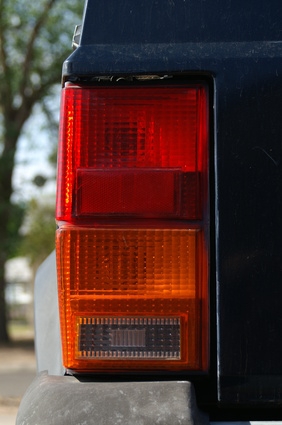
Brake lights are used to indicate to other motorists that an automobile is slowing or stopping. Driving with faulty brake lights may result in a driver receiving a ticket for faulty equipment or a collision.
Damaged wiring may cause one or more brake lights to work intermittently. The wiring from the brake lights to the passenger cabin and the wiring to the switch on the brake pedal should be carefully examined. Worn or melted insulation may cause a short that can cause brake failure. All wiring connections should be checked to make certain they are tight and not corroded.
A defective ground will cause brake lights to fail. Brake lights may ground through the socket, via a separate wire running to an exposed metal surface, or via a common ground wire used by all tail lights. Both the ground screw and grounding surface should be cleaned to bare metal with a metal brush.
A loose, broken or corroded socket may cause one brake light to repeated fail. The suspected socket should be examined for signs of damage, including cracks in the housing and loose bulb fit. The electrical contacts inside the socket should be examined for corrosion as well.